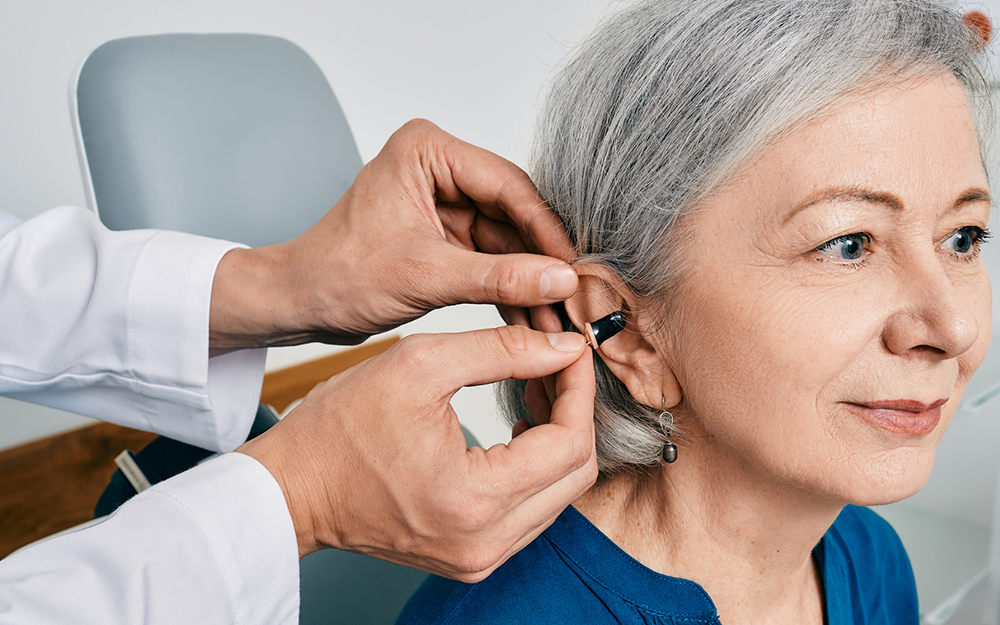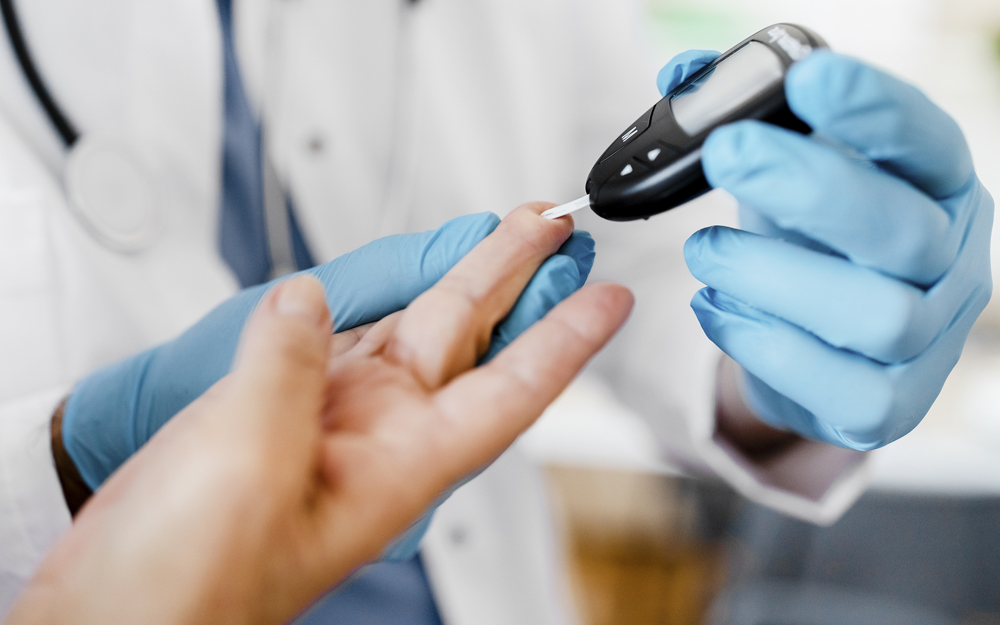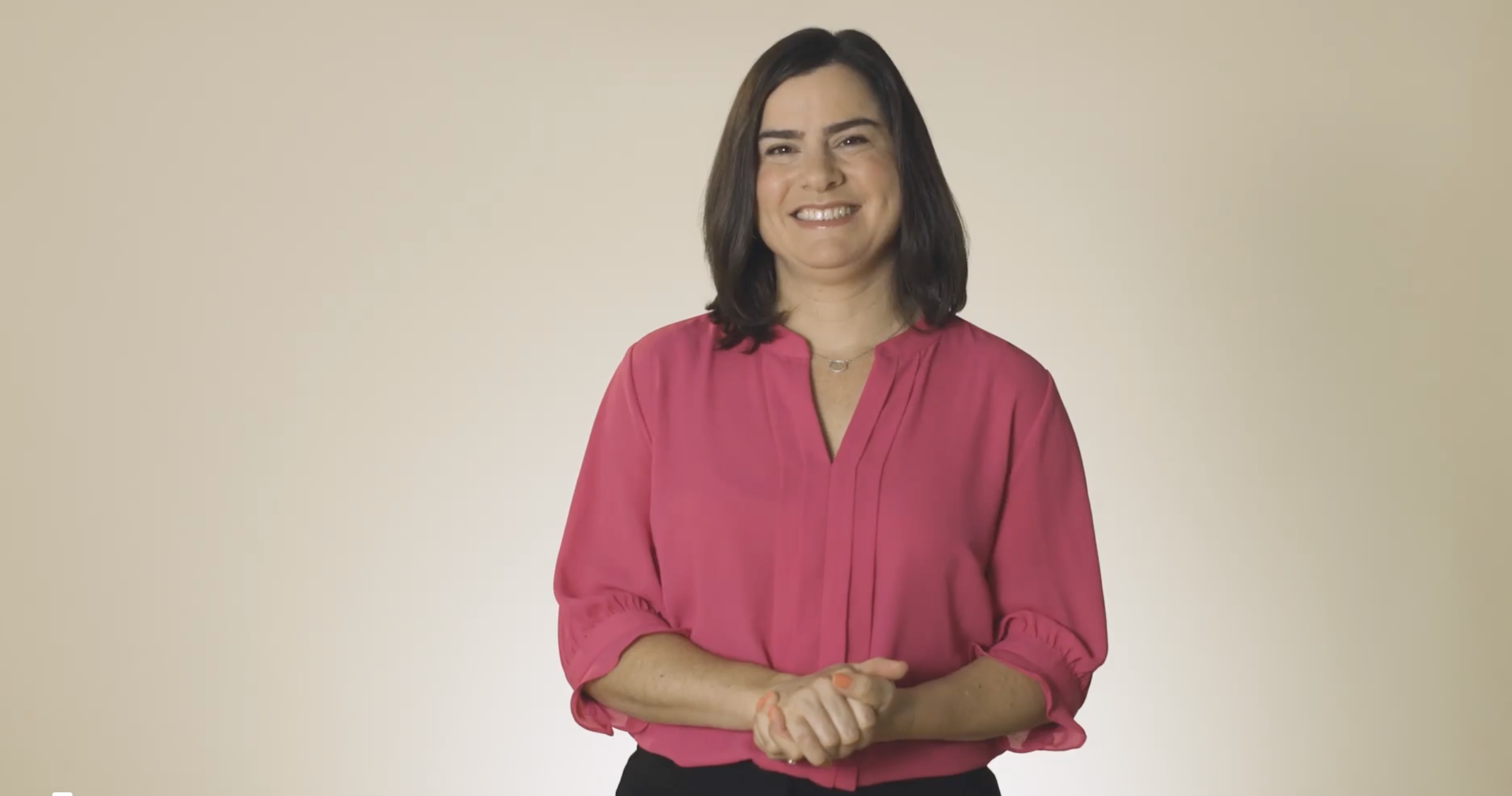Treating Hearing Loss
Date
October 21, 2022
Credits

Date
October 21, 2022
Credits
Medical providers featured in this article

In Brief
{{cta-block}}
Maybe you’re not catching what goes on around you as much as you used to. You’re missing questions and getting confused. Voices sound muffled, as if you’re underwater. One day, your world falls silent. It’s a terrifying reality for many, one that can leave them feeling sidelined in their own lives.
Hearing loss affects about 37.5 million U.S. adults, according to the National Institute on Deafness and Other Communication Disorders (NIDCD). The third most common chronic health condition, hearing loss can come on suddenly or gradually over years and is frequently triggered by loud noises.
But you can take steps to protect your hearing and potentially treat certain types of damage, says Cedars-Sinai neurotologist Dr. Yu-Tung Wong, an ear, nose and throat (ENT) specialist with an emphasis on hearing-related disorders.
“The first and foremost thing to do is to not lose any more hearing,” he stresses.
{{providers}}
“The first and foremost thing to do is to not lose any more hearing.”
Look after your ears
Chronic noise exposure adds up, whether you’re in a noisy workplace, commuting, using everyday appliances like hairdryers, or attending entertainment events like movies and concerts. Extreme noise can hurt your ears even faster—sometimes immediately or within 10 minutes.
Always use earplugs in these environments, Dr. Wong stresses.
Modern earbuds are making the problem worse. A generation of young people have grown up listening to loud music in their headphones, creating an epidemic of hearing loss, Dr. Wong says.
To help protect your ears, don’t listen to loud music for longer than 60 minutes at more than 60% volume, he suggests, and take breaks for at least 10 minutes if you plan to listen longer.
In Discoveries: Silence Is Golden
Pay attention to sound-related discomfort or frustration
Hearing loss warning signs include:
- Trouble understanding others, or asking people to repeat themselves often—which they might notice before you
- Struggling to hear high or low pitches or soft voices, or if there’s background noise
- Dizziness
- Ringing, roaring or buzzing—known as tinnitus
- Feeling like your ears are plugged
Some causes of hearing loss are mechanical, including impacted earwax, stuck cotton swabs or foreign objects, trapped fluid from ear infections, ruptured eardrums, ear barotrauma caused by pressure from water or travel, and genetic birth defects such as missing ear bones.
Other causes are sensorineural and involve changes to nerves and hair cells inside the ear that are usually brought on by loud noises and aging.
Inner ear conditions such as Ménière disease—which is often accompanied by vertigo—and medications such as chemotherapies can also damage nerves and, in turn, impair hearing.
When to get a hearing test
If your ability to hear drops abruptly, visit your primary care doctor or an urgent care facility within two to three days, Dr. Wong recommends. Your doctor will look inside your ear canal to see if it’s blocked with wax, which typically can be cleared, or if there is an infection that can be treated with antibiotics.
Hearing problems in just one ear may require magnetic resonance imaging (MRI) to check for tumors in the skull affecting the hearing nerve.
If your doctor doesn’t see an immediate cause, they should urgently refer you for a hearing test.
“Sudden sensorineural hearing loss is an emergency,” Dr. Wong says. “When hearing changes rapidly, it could be lost to a very severe degree, and we have a small window of time to treat it and potentially recover the hearing.”
If it’s caught within weeks, ENT doctors can turn things around with high-dose steroid ear injections and hyperbaric oxygen therapy, which is the same treatment scuba divers use for decompression sickness.
Hearing is a range
Audiologists offer basic screenings to see how well you detect progressive sound volumes, measured in decibels.
They also test your hearing at high, medium and low frequencies, which can vary dramatically.
Comprehensive audiograms go even further, sending sound waves directly into your hearing bones through a vibration device to determine if the hearing loss is due to damage to the ear’s structures or nerves—which drives treatment plans.
These tests also measure word clarity because some patients can have strong sound detection but also have a hard time understanding words.
Collective scores determine whether your range is normal or mild, moderate, severe or profound hearing loss.
If your hearing is worsening with age but not yet affecting your life, your audiologist might suggest coming back for a repeat test in a year.
Hearing aids are more available and more effective than ever
Most people with hearing loss should start with hearing aids, Dr. Wong says.
These smart devices amplify only frequencies you need and are tailored to fit both your ear canal and specific audiological condition. And they’re constantly evolving to include many of the same technologies as cellphones, such as noise cancellation, multiple microphones and Bluetooth.
But few of the nearly 29 million adults who could benefit from hearing aids use them. According to NIDCD, less than 30% of adults age 70 and older and 16% of adults ages 20 to 69 who need hearing aids use them.
A recent Food and Drug Administration decision to allow over-the-counter sales for hearing aids could clear the way for more people to try them for mild or moderate hearing loss.
The move is exciting and could remove financial and accessibility barriers, Dr. Wong says—but it will likely require patient education.
"Some people do great right from the very beginning, while others can really struggle and need the hand-holding that a professional hearing aid provider can give them," he notes.
Adjusting to wearing hearing aids
Hearing aids always take time to get used to, Dr. Wong says. Noise can feel loud and overwhelming when your hearing has been muffled for a long time.
Audiologists often start by setting a patient’s hearing aids at a low volume setting and then turn it up higher every one to two weeks as the patient’s brain adjusts. Regular checkups at the beginning can set you up for success, Dr. Wong adds.
You might also need a customized or larger device or a higher level of care: Hearing aids can turn up sound—but they may not make it clearer.
And they require routine maintenance for wear and tear, usually every few months. Also, patients may need to replace or upgrade their hearing aids every three to five years, says Dr. Wong. That’s a good time to get your hearing screened again.
In Newsroom: Acoustic Neuromas: Benign but Complex and Potentially Devastating Tumors
When to consider surgery for hearing loss
If you’re not getting any benefit from your hearing aids after six months, an ENT specialist can evaluate you for cochlear implant surgery.
Cochlear implants bypass damaged cells and electrically stimulate the cochlear nerve, which sends hearing signals to your brain. With time, the brain learns to reinterpret these electrical pulses and to better recognize them as natural sounds.
Cochlear implant outpatient surgery is "never the first option," and it’s not expected to restore hearing completely back to normal, Dr. Wong clarifies.
But the results can be life-changing for severely hard-of-hearing or deaf people. Certain patients with milder hearing loss might also do better with a cochlear implant instead of a hearing aid.
A formal cochlear implant evaluation could be the answer for patients who are still struggling despite using the appropriate hearing aids for their type of hearing loss.





